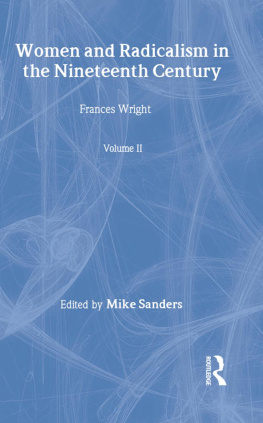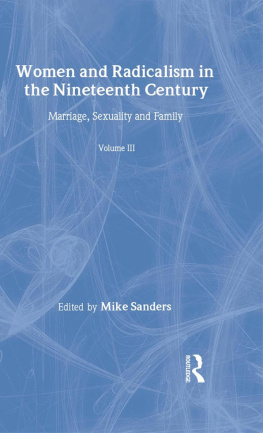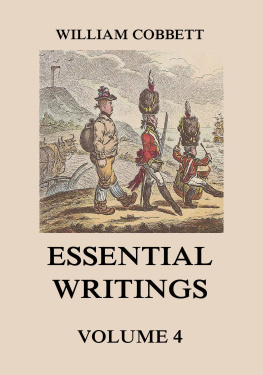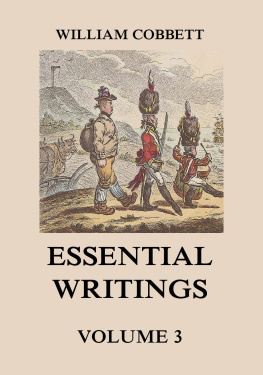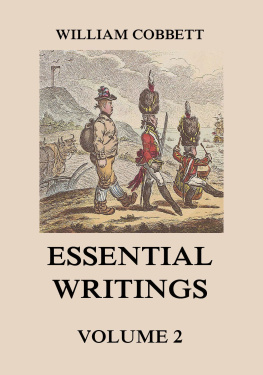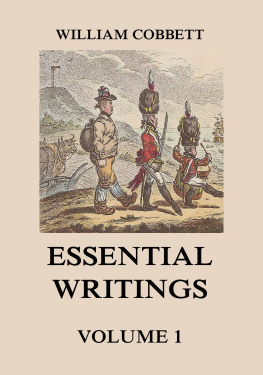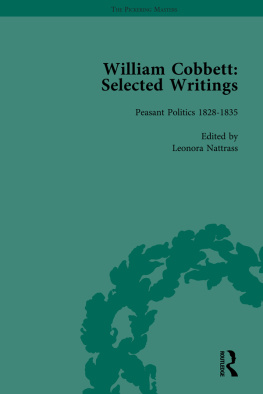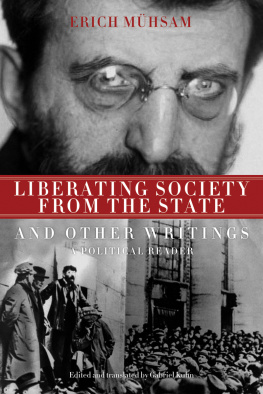This edition published 2001
by Routledge
2 Park Square, Milton Park, Abingdon, Oxon OX14 4RN
Simultaneously published in the USA and Canada
by Routledge
605 Third Avenue, New York, NY 10017
Routledge is an imprint of the Taylor & Francis Group, an informa business
Introduction and selection 2001 Mike Sanders.
Typeset in 10/12pt Times by Graphicraft Limited, Hong Kong
All rights reserved. No part of this book may be reprinted or reproduced or utilised in any form or by any electronic, mechanical, or other means, now known or hereafter invented, including photocopying and recording, or in any information storage or retrieval system, without permission in writing from the publishers.
Notice:
Product or corporate names may be trademarks or registered trademarks, and are used only for identification and explanation without intent to infringe.
British Library Cataloguing in Publication Data
A catalogue record for this book is available from the British Library
Library of Congress Cataloging in Publication Data
Women and radicalism in the nineteenth century / edited and with an introduction by Mike Sanders.
p.cm.
Includes bibliographical references
Contents: Specific controversies Frances Wright Marriage, sexuality, and family Women and industrialism.
ISBN 0-415-20525-5 (set) ISBN 0-415-20526-3 (vol. 1) ISBN 0-415-20527-1 (vol. 2) ISBN 0-415-20528-X (vol. 3) ISBN 0-415-20529-8 (vol. 4)
1. Women Great Britain History 19th century. 2. Womens rights Great Britain History 19th century. 3. Women Great Britain Social conditions. 4. Radicalism Great Britain History 19th century. 5. Feminism Great Britain History 19th century. 6. Sexual ethics Great Britain History 19th century. I. Sanders, Mike, 1966
HQ1596.W652001
305.4094109034 dc21
00-064080
ISBN 13: 978-0-415-20525-2 (set)
ISBN 13: 978-0-415-20527-6 (hbk) (volume 2)
The publishers have made every effort to contact authors/copyright holders of works reprinted in Women and Radicalism in the Nineteenth Century. This has not been possible in every case, however, and we would welcome correspondence from those individuals/companies whom we have been unable to trace.
References within each chapter are as they appeared in the original complete work.
FRANCES WRIGHT
I may observe, however, that from the age of seventeen, when I first accidentally opened the page of Americas national history, as portrayed by the Italian Bocca, the only work on a subject so politically heterodox which had found a place in the aristocratical libraries which surrounded my youth from that moment my attention became rivetted on this country, as on the theatre where man might first awake to the full knowledge and the full exercise of his powers.
[]
As Frances Wrights own Preface to her Course of Popular Lectures (first published in 1829 and reprinted here in its entirety) makes clear, her radicalism was inspired by the radical promise of the United States of America. Born in Dundee in 1795 into a wealthy mercantile family, Wright was raised (after the death of her father in 1798) by her mothers family, the Campbells. The politically conservative, militarily-minded environment provided by the Campbells seems an unlikely breeding ground for political radicalism, but as Wright recalls, a chance encounter with a history of the American Revolution effectively transformed her life. In 1818 Wright travelled to the USA and remained there until May 1820 when she returned to England. In 1821 she published Views of Society and Manners in America, a work which praised American democratic institutions (not without significance in post-Peterloo England) and which sufficiently impressed Jeremy Bentham to cause him to invite her to join his intellectual circle. Here she met many of the leading Philosophic Radicals including James Mill, George Grote, John Austin and Francis Place, and encountered first-hand those Utilitarian, free-thinking and anti-clerical ideas which had a formative influence on her political and social thought. In 1824 she returned to the USA accompanied by General Lafayette who introduced her to Thomas Jefferson, James Madison, John Quincy Adams and Andrew Jackson. The following year she visited the Rappite communities at Economie, Pennsylvania, and Harmonie, Indiana (recently acquired by Robert Owen and renamed New Harmony). Inspired by these communities Wright purchased land at Nashoba, Tennessee, and set up an experimental colony designed to effect the gradual abolition of slavery by permitting slave families to work to purchase their freedom.
Wrights involvement with the Nashoba community proved costly on a number of grounds. She contracted malaria while assisting with the ground-clearing and planting, and this necessitated a convalescent trip to Europe. During her absence in Europe the community itself became the subject of sexualracial scandal and finally failed in 1830 at a cost to Wright of $16,000. Both Robert Owen and Robert Dale Owen had been involved with the Nashoba experiment and Frances Wright joined the latter as co-editor of The New Harmony and Nashoba Gazette or Free Enquirer. By 1828, Wright had become the leader of the sceptical movement in the USA which had emerged in response to the rise of the Christian Party in Politics and she embarked on an extensive lecture tour which gave rise to the Course of Popular Lectures. In January 1829 Wright began publishing the Free Enquirer in New York and from March 1829 onwards the Free Enquirer took an interest in the condition of the working classes. Wrights proposals for educational reform (outlined in her seventh lecture On Existing Evils and their Remedy) enjoyed widespread support within the emergent labour movement. Indeed, the Working-Mens Party was often styled the Fanny Wright Party by its opponents.1
Frances Wrights radical career was heavily influenced by her experience of the USA and this serves as an important reminder that the USA in the early decades of the nineteenth century was in many ways analogous to the Soviet Union in the early decades of the twentieth. Both countries represented the future, and were seen as test cases which would either prove or disprove the viability of the new political and social structures associated with Democracy and Socialism, respectively. In similar fashion both countries attracted interested visitors (eager to have their hopes or fears confirmed by first-hand experience) who produced an extensive critical literature detailing life under the new dispensation. In this respect, Wrights Views of Society and Manners in America stands as a pioneering work in a genre which includes Alexis De Tocquevilles Democracy in America (1835 and 1840) and Harriet Martineaus Society in America (1837). Republican America not only inspired Wright (both in its example and its shortcomings), it also gave her the opportunity to enter the arena of public debate and disputation. The Course of Popular Lectures is a record then of the intellectual power and political courage shown by a young woman who found herself at the head of a popular, radical movement. Popular acclaim and widespread vilification (the

